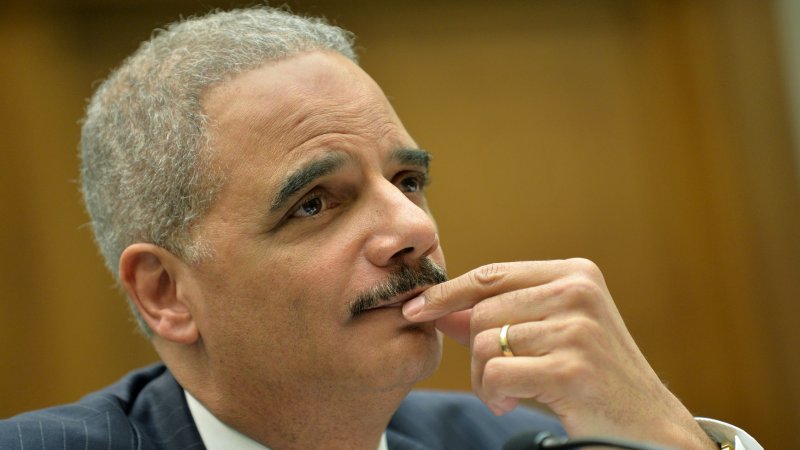WASHINGTON, June 4 (UPI) -- U.S. Attorney General Eric Holder didn't lie to Congress about a leak probe because probing a reporter isn't prosecuting one, a Justice Department deputy said.
"At the outset, it is important to note the difference between an investigation and a prosecution," Peter Kadzik, principal deputy assistant attorney general for legislative affairs, said in a letter to House Judiciary Chairman Bob Goodlatte, R-Va., and Subcommittee on Crime, Terrorism and Homeland Security Chairman Jim Sensenbrenner, R-Wis.
An investigation of potential criminal activity "typically comes before any final decision about prosecution" and can be conducted with a lower burden of proof, the letter said.
It referred to Holder's approval of a search-warrant request for Fox News reporter James Rosen's private correspondence after he reported in June 2009 about a North Korean nuclear test that had not been made public.
That report, which said the CIA learned of the test from sources inside North Korea, sparked a criminal leak investigation, in part because North Korea now knew the CIA indeed had sources inside North Korea.
State Department contractor Stephen Jin-Woo Kim has been charged with leaking the details of a top-secret memo about the CIA finding. He has pleaded not guilty and awaits trial.
In Rosen's case, the "probable cause" standard was enough to justify an investigation search warrant, Kadzik said in the letter.
By contrast, the higher "beyond a reasonable doubt" standard is needed for a prosecution, Kadzik said.
The affidavit filed in Rosen's investigation cited probable cause to believe Rosen violated the 1917 Espionage Act.
Kadzik noted a grand jury charged Kim with the unauthorized disclosure of classified information but has not charged Rosen with anything.
"At no time during the pendency of this matter -- before or after seeking the search warrant -- have prosecutors sought approval to bring criminal charges against the reporter," Kadzik wrote.
In May 15 testimony, Holder dismissed the notion reporters writing about national security secrets should be indicted under the Espionage Act.
"With regard to the potential prosecution of the press for the disclosure of material -- that is not something that I've ever been involved in, heard of or would think would be a wise policy.
"In fact, my view is quite the opposite," Holder said, adding, "There should be a shield law with regard to the press' ability to gather information and to disseminate it."
But since then the department confirmed Holder approved the Rosen search-warrant request and an FBI agent investigating the case describes Rosen in a Justice Department affidavit in support of the search-warrant request as "an aider, an abettor, and/or a co-conspirator."
Goodlatte and Sensenbrenner wrote to Holder May 29 asking him for clarification.
Holder's testimony "was accurate and consistent with these facts," Kadzik wrote, referring to various legal distinctions the letter made.
"We are unaware of an instance when the department has prosecuted a journalist for the mere publication of classified information," the letter said.
Goodlatte and Sensenbrenner had no immediate public comment on the letter.
House Oversight and Government Reform Committee Chairman Darrell Issa, R-Calif., spoke about Holder's May 15 testimony Sunday on CNN's "State of the Union."
"It would be kind to say he misled Congress. It would be less kind and more accurate to say that would rise to be a lie by most people's standards," he said.
But Issa declined to describe Holder's statement as "perjury."
"One of the things about perjury, this is the attorney general. Don't use perjury lightly. Perjury is a criminal charge that has to be proven. But certainly it's hard to have confidence in what this attorney general says or his people say when so often it turns out not to be true," he said.















